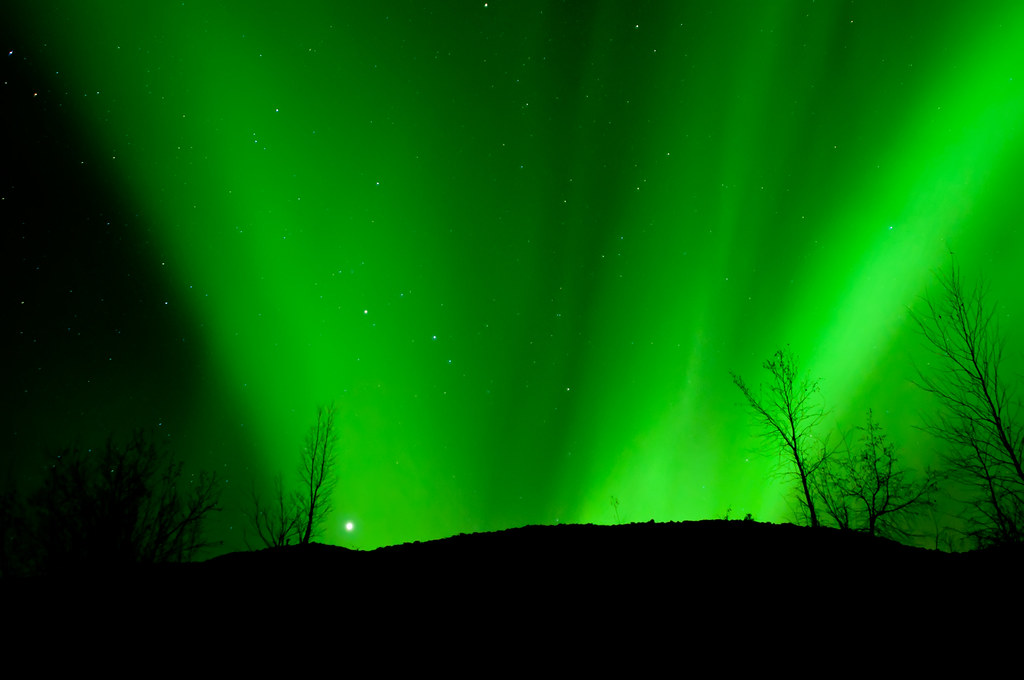
Many cultures thought the aurora to be associated with spirits (among other things, but let's stick with spirits). For example:
- Some native Canadian and Alaskan tribes thought the aurorae were the dancing spirits of humans or animals.
- The Vikings thought they were reflections from the shields upon which dead warriors were carried to Valhalla.
- Labrador natives postulated the aurorae were the spirits of those who died a violent death.
- In east Greenland, it was thought to be the ghosts of children who died at birth.
- The Fox tribe of Wisconsin thought the aurorae were the ghosts of defeated enemies seeking revenge.
- The Iroquois thought it was the entry point to the land of souls.
- The Lakota Sioux turned the whole thing on its head, interpreting the aurora as spirits yet to be born.
Here I've paired the aurora with another kind of ghost, the long-dead machinery of Alaska's gold rush. The Chatanika dredge is an example of the lengths people go to for shiny rocks. In it's heyday, a camp of 10,000 people existed to support its mission of turning over the earth in search of gold. The operation of such a machine left piles of loose rocks, called tailings, three-or-four stories high on both sides of the channel it dug.
The rising planet Jupiter, as seen from the base of one of these piles.
By 1960 the dredge was no longer in operation, and it was left to its own devices, to meet its lonely fate under the crisp subarctic sky.
"I was amazed at how simple it was for nature to cloak
corruption in the garb of purity and make it peaceful."
- Robert Charles Wilson, Julian Comstock
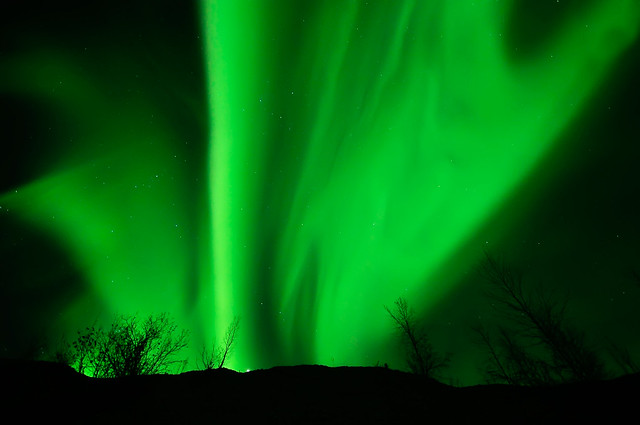
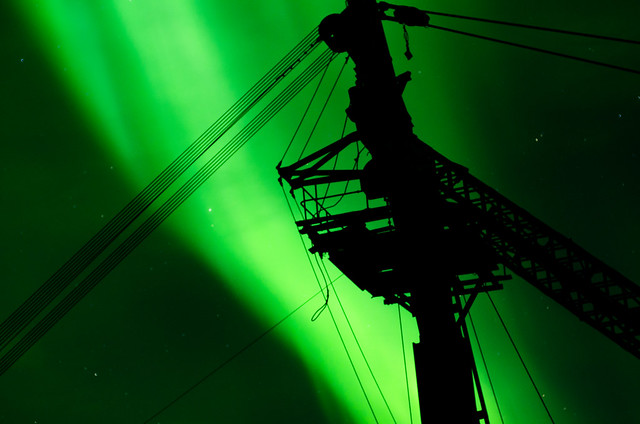
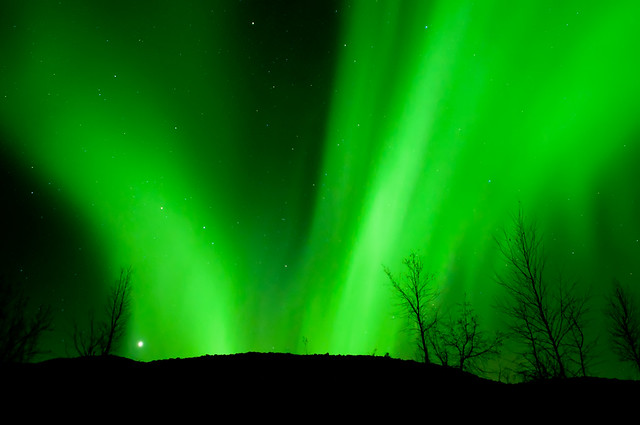
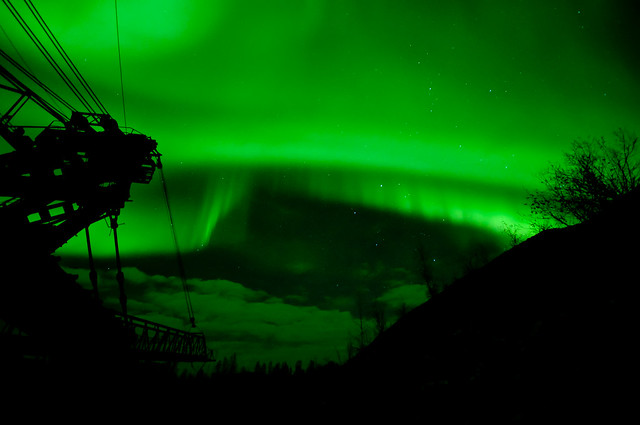
No comments:
Post a Comment